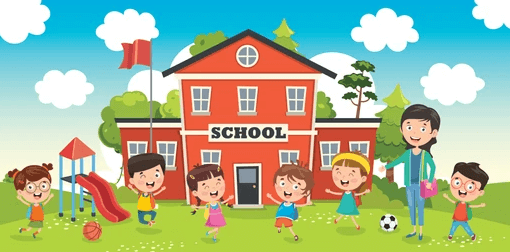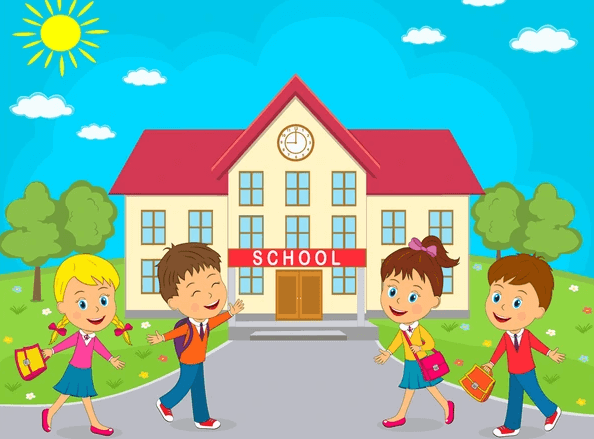clipart:_uexxcvpibu= school

Introduction to School
Schools are foundational institutions in society, serving as places for education and personal development. They play a critical role in shaping young minds and preparing students for future challenges. Schools foster social skills, discipline, and a love for learning. By offering a structured environment, they provide the necessary framework for academic and personal growth. The importance of schools in a community cannot be overstated.
History of Education
Education has evolved significantly from ancient times, where early schools focused on basic literacy and numeracy. Over centuries, education systems developed, incorporating diverse subjects and teaching methods. Key milestones include the establishment of universities and the development of formal curricula. Understanding this evolution helps appreciate the complexities of modern education. Historical perspectives also shed light on current educational practices.
Types of Schools
Various types of schools cater to different educational needs, including public, private, charter, and online institutions. Public schools are government-funded and accessible to all, while private schools offer specialized curricula. Charter schools provide alternative teaching methods, and online schools offer flexible learning environments. Each type of school presents unique benefits and challenges, catering to diverse student populations.
School Curriculum
A school’s curriculum encompasses core subjects like mathematics, science, and language arts, along with electives such as art and music. Extracurricular activities, including sports and clubs, enhance the educational experience. A well-rounded curriculum fosters intellectual curiosity and personal growth. It also prepares students for higher education and future careers by promoting critical thinking and problem-solving skills.
School Administration
School administration includes principals, vice principals, and other leaders responsible for managing school operations. Their roles encompass curriculum development, staff management, and student welfare. Effective administration is crucial for maintaining a positive school environment and ensuring educational quality. Administrators play a pivotal role in implementing policies and fostering a supportive atmosphere for learning.
Teachers and Staff
Teachers and staff are the backbone of any educational institution, directly impacting student success. They bring expertise, passion, and dedication to the classroom, guiding students through their educational journey. Qualified educators are essential for delivering quality instruction and fostering a nurturing learning environment. Their influence extends beyond academics, shaping students’ values and life skills.
Classroom Environment
The classroom environment significantly influences student learning and engagement. Well-organized, resource-rich spaces with modern technology enhance educational experiences. A positive, inclusive classroom climate encourages participation and fosters a sense of belonging. Effective use of technology and resources supports diverse learning styles and helps students thrive academically.

Student Life
Student life encompasses daily routines, participation in clubs, and involvement in sports. These activities contribute to a well-rounded education, promoting teamwork, leadership, and time management skills. Engaging in extracurriculars enhances social interactions and provides opportunities for personal growth. A vibrant student life enriches the overall school experience, making learning enjoyable.
Parental Involvement
Parental involvement is crucial for student success, fostering a supportive home environment that complements school efforts. Parents can participate through volunteering, attending meetings, and supporting learning at home. Active parental engagement positively impacts student motivation and academic achievement. Schools benefit from strong parent-school partnerships, enhancing educational outcomes.
Read Also clipart:8ph6q0ltrde= horse
Challenges in Education
Education faces several challenges, including funding constraints, standardized testing pressures, and equity issues. These challenges affect the quality of education and access to resources. Addressing these issues requires collaboration among educators, policymakers, and communities. Solutions focus on equitable funding, comprehensive assessments, and inclusive policies to support diverse learners.
Innovations in Education
Innovations in education include technology integration, new pedagogical approaches, and personalized learning experiences. These advancements cater to individual student needs and enhance engagement. Technology facilitates interactive learning, while innovative teaching methods promote critical thinking. Embracing these changes prepares students for the demands of a rapidly evolving world.
School Safety
Ensuring school safety is paramount, encompassing policies on bullying prevention, emergency procedures, and overall student well-being. clipart:_uexxcvpibu= school implement safety measures to create secure learning environments. Addressing safety concerns builds trust among students, parents, and staff, fostering a positive school culture. Proactive safety initiatives contribute to a supportive educational experience.
School and Community
Schools play a vital role in communities, fostering partnerships and organizing events that encourage volunteerism. Community involvement enriches the educational experience, providing additional resources and support. Schools and communities collaborate on projects that benefit both students and residents. Strong school-community ties enhance the educational environment and promote civic engagement.
Global Education Systems
Comparing global education systems reveals diverse approaches to teaching, curriculum, and assessment. These differences reflect cultural values and educational goals. Understanding these variations highlights best practices and areas for improvement. Global comparisons foster discussions on educational reform and innovation, ultimately enhancing learning experiences worldwide.
FAQs about School
What are the benefits of different types of schools?
Each type offers unique advantages, catering to diverse needs and learning styles.
How does parental involvement impact student success?
Active parental involvement enhances motivation and academic performance, creating a supportive learning environment.
What challenges do schools face today?
Schools face funding constraints, standardized testing pressures, and equity issues, impacting educational quality.
How do innovations improve education?
Innovations like technology integration and personalized learning enhance engagement and cater to individual needs.
What role do schools play in communities?
Schools foster partnerships and volunteerism, enriching educational experiences and promoting civic engagement.
Conclusion
clipart:_uexxcvpibu= school are vital institutions that shape individuals and communities, providing education, fostering growth, and promoting lifelong learning. Their role in society is multifaceted, encompassing academic, social, and personal development. As education continues to evolve, schools remain at the forefront of preparing future generations for a complex and dynamic world.




